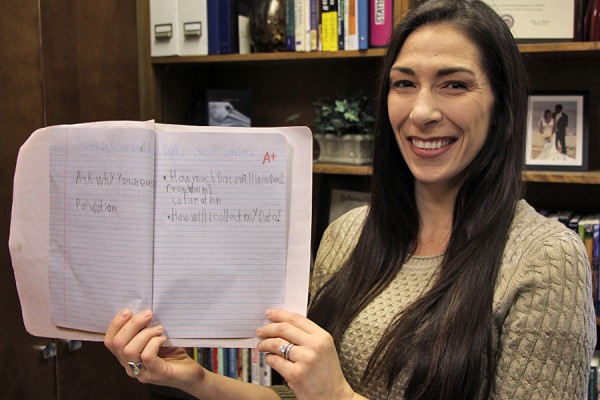 Psychology professor Onawa LaBelle shows the notes taken by the seven-year-old son of a student who sat in on a class.
Psychology professor Onawa LaBelle shows the notes taken by the seven-year-old son of a student who sat in on a class.
Recognizing that respect for diversity extends to diversity in parenting status, a UWindsor psychology professor has added a child-friendly policy to her course syllabi, and encourages colleagues to do the same.
“None of my students should ever have to decide between being a parent and going to class,” says Onawa LaBelle. “I think it’s important to be inclusive of all students.”
She recalls that as a student, she saw friends miss out on opportunities because they had to decide between school and parenting.
“That was one of the things that brought home to me the reality of gender disparity,” Dr. LaBelle says. “Women are already at a disadvantage and we have the chance to support them in their struggle dealing with childcare.”
Her policy draws on the example of anthropologist Melissa Cheyney from Oregon State University. It allows students to bring a child to class in an emergency, asks that they sit close to a door, welcomes breastfeeding babies, and calls on all students to create a respectful environment.
The policy was put to the test this semester, when a student brought her seven-year-old son to class.
“To be honest, I didn’t even know he was there,” says LaBelle. “After class, he came up to me and presented his lecture notes, complete with a sketch of the UWindsor logo. I wrote A+ on them — he was so happy!”
She invites other faculty members to consider adopting a similar policy for their course outlines, and suggests Dr. Cheyney’s policy is a worthwhile model; read it on the OSU website.




